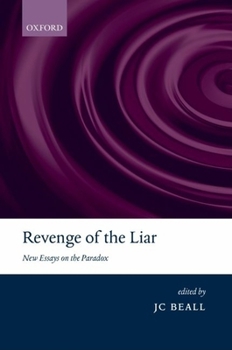Revenge of the Liar: New Essays on the Paradox
The Liar paradox raises foundational questions about logic, language, and truth (and semantic notions in general). A simple Liar sentence like 'This sentence is false' appears to be both true and false if it is either true or false. For if the sentence is true, then what it says is the case;
but what it says is that it is false, hence it must be false. On the other hand, if the statement is false, then it is true, since it says (only) that it is...
Format:Hardcover
Language:English
ISBN:0199233918
ISBN13:9780199233915
Release Date:February 2008
Publisher:Oxford University Press, USA
Length:296 Pages
Weight:1.58 lbs.
Dimensions:1.1" x 6.5" x 9.3"
Related Subjects
PhilosophyCustomer Reviews
0 rating





